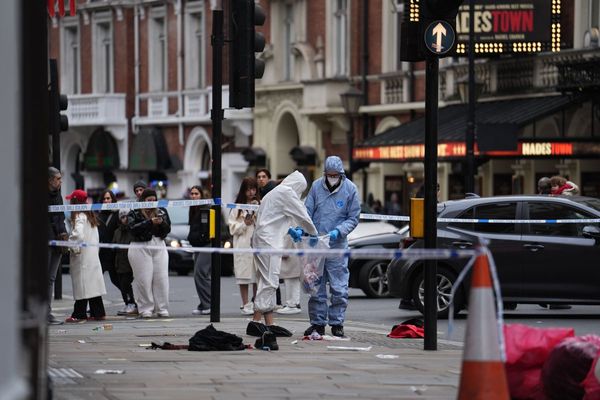
Paris (AFP) - World Athletics are likely to tighten rules around the participation of transgender women in female competition in a charged meeting of its decision-making body Thursday that should also see the doping ban on Russia lifted.
Administrators behind the leading Olympic sport have taken a different approach from that of swimming which has effectively banned transgender athletes from elite female competition.
Track and field's global body have said its "preferred option" is to tighten the rules surrounding eligibility but that it wants to use limits on testosterone as the key determining factor.
It said its preferred option was to amend the regulations covering both transgender athletes and those classified as DSD, in other words having "differences of sexual development".The most high-profile DSD athlete is double Olympic 800m champion Caster Semenya of South Africa.
Under the World Athletics proposals, in order to compete in the female category, transgender and DSD athletes would have to reduce their amount of blood testosterone from the current maximum of five nanomoles per litre to below 2.5, and remain below this level for two years rather than just one, as is the case now.
The proposals will be discussed and put to the vote at the meeting of World Athletics' Council that starts Tuesday in Monaco, with any decisions published on Thursday.
Intense scrutiny
Another major proposal is that concerning Russian athletes, coming at the moment where global sporting bodies are debating their potential reintegration ahead of the 2024 Paris Olympics.
Russia's track and field federation has been barred since 2015 after a damning World Anti-Doping Agency report identified "a deeply-rooted culture of doping".It is not eligible to host World Athletics events or send teams to international championships.
For the athletics superpower to return it has to meet a series of strict conditions including establishing a culture of zero tolerance and an effective anti-doping structure.
Just a handful of Russian athletes took part in track and field at the Tokyo Olympics, which was postponed from 2020 to 2021 because of the Covid pandemic, and they did so under a neutral flag.
A lifting of sanctions over the doping issue would have little immediate effect, however, as all Russian and Belarusian athletes have been banned from competition "for the foreseeable future" since Moscow's invasion of Ukraine in February 2022.That includes the option of competing as a neutral.
Just 18 months out from the Olympics in Paris, the sport of athletics' point of view on potential Russian participation will come under increased scrutiny.
After having recommended the exclusion of Russian and Belarusian sportspeople 13 months ago, the International Olympic Committee in January said it was seeking a "pathway" for Russians to take part in the Games in the French capital.
Following that announcement, the Olympic Council of Asia (OCA) offered athletes from both countries the chance to compete in this year's Asian Games.
That was a significant move because they could gain qualifying marks in competition in Asia to allow them to compete in Paris.
That prompted a demand for clarification from more than 30 countries including the United States, Canada, Britain, France and Sweden.
There seems to be a groundswell towards allowing the return of Russians and Belarusians under a neutral flag, and the Olympic sport of fencing earlier this month decided to allow athletes from those two countries to take part in qualifying events, sparking outrage in Ukraine.
The ongoing women's World Boxing Championships in India has also featured fighters from both Russia and Belarus competing under their national flags and anthems.
That led to a boycott by countries including the United States, Ukraine, Canada, Sweden and Britain.
World Athletics president Sebastian Coe has been unequivocal in his previous declarations on the fall-out from the Ukraine invasion, saying his body would not budge while Kyiv remained under attack.







